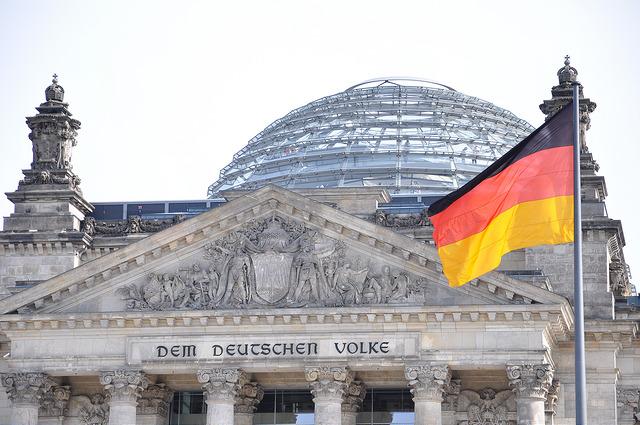A year of the AfD in the German parliament
Posted By Jacqueline Westermann on September 28, 2018 @ 11:15

Germany’s federal elections in September 2017 marked a turning point in the nation’s parliamentary history. A far-right extremist party entered the Bundestag for the first time since the end of World War II. Alternative für Deutschland (Alternative for Germany, or AfD) won 12.6% of the vote in 2017 and has 92 members in parliament. Since the Christian Democrats and Social Democrats formed the governing coalition, the AfD has been the largest opposition party. In 1969 another far-right party, the National Democratic Party of Germany (NPD), narrowly missed clearing the 5% hurdle to gain representation in the Bundestag in federal elections—the only time it came close —though it has won seats in state elections throughout the federal republic’s history.
In the 12 months that the AfD has been in the Bundestag, it’s changed the debating culture. AfD members are provocative and they’ve polarised debate and disrupted long-established procedures. They regularly interrupt debates with loud and derisive laughter to denigrate opponents and attract attention to themselves. While such behaviour is not unheard of even in the normally ordered Bundestag, the AfD has taken it to a new level [1].
AfD members have flouted procedures and made headlines by, for instance, initiating a spontaneous minute of silence to commemorate the alleged killing of a teenage girl by an asylum seeker. Recently, the whole AfD parliamentary group left the plenary hall [2] after Social Democrat MP, Johannes Kahrs, referred to them as radical right extremists. The AfD MPs accompanied their exit with yelling, commotion, and foot stomping to demonstrate their unity of purpose and disdain for the others in parliament, and in society generally, who do not share their views.
Presentation matters to the AfD and it has been using the Bundestag as a stage on which it creates [3] images and makes statements that can be distributed through its social media platforms.
What used to be the extreme language of few on the fringes of the AfD has become the norm across the party. Some AfD officials, who were by any standard on the far right, have been tagged by even more extreme members as ‘moderates’ and some have since left the party. One example includes the former head of the party, Frauke Petry, who’s still a member of the Bundestag but not of the AfD’s parliamentary working group nor of the party itself. She has instead formed her own Blue Party, which is also positioned on the right, though Petry says it has a more moderate conservative foundation than the AfD.
There’s now serious concern that the constant torrent of extremist language is desensitising the public to highly offensive ideas. However, MPs from other parties haven’t given up. They regularly expose inaccurate AfD claims, and highlight the discrepancies between what the party says and what it does. They continue to defend democratic and German values, as seen in the passionate speech by Alliance 90/Greens MP Cem Özdemir on the fate of Turkish–German journalist, Deniz Yücel, who was imprisoned by the Turkish government.
It also became very apparent that the AfD lacked considered positions on healthcare, education, social policies and more when its co-leader Alexander Gauland was interviewed by German broadcaster ZDF. Gauland was asked to explain the party’s position on topics outside its focus on refugees and migration. This simple line of questioning was portrayed by The Atlantic [4] as a valuable guide on how to expose extremists, and report on the far-right.
In a poll of voting intentions this month, the AfD overtook the Social Democrats for the first time with its strongest result yet of 18% [5] support. However, in other polls [5] taken shortly afterwards, the AfD came in behind the Social Democrats.
While the reliability of polls can be questioned, it appears that the number of Germans voting for this far-right extremist party is increasing despite Germany’s history. Whether the support derives from actual belief in the AfD’s values and in its program is not clear but, mirroring a global trend, many Germans apparently feel comfortable supporting a party with racist tendencies if that’s what it takes to send the major parties a message of discontent with current governing policies.
Article printed from The Strategist: https://aspistrategist.ru
URL to article: /a-year-of-the-afd-in-the-german-parliament/
URLs in this post:
[1] AfD has taken it to a new level: https://projekte.sueddeutsche.de/artikel/politik/die-afd-im-bundestag-e362724/
[2] left the plenary hall: https://www.handelsblatt.com/video/politik/eklat-im-bundestag-kahrs-attackiert-afd-fraktion-verlaesst-plenarsaal/23059076.html?ticket=ST-895620-qaQHlma9wIfiTFkdcIGf-ap4
[3] stage on which it creates: https://www.deutschlandfunkkultur.de/politologe-zu-sechs-monaten-afd-im-bundestag-ideologisch.1008.de.html?dram:article_id=413892
[4] The Atlantic: https://www.theatlantic.com/international/archive/2018/08/how-to-discuss-the-far-right-without-empowering-it/567520/
[5] 18%: https://www.wahlrecht.de/umfragen/
Click here to print.